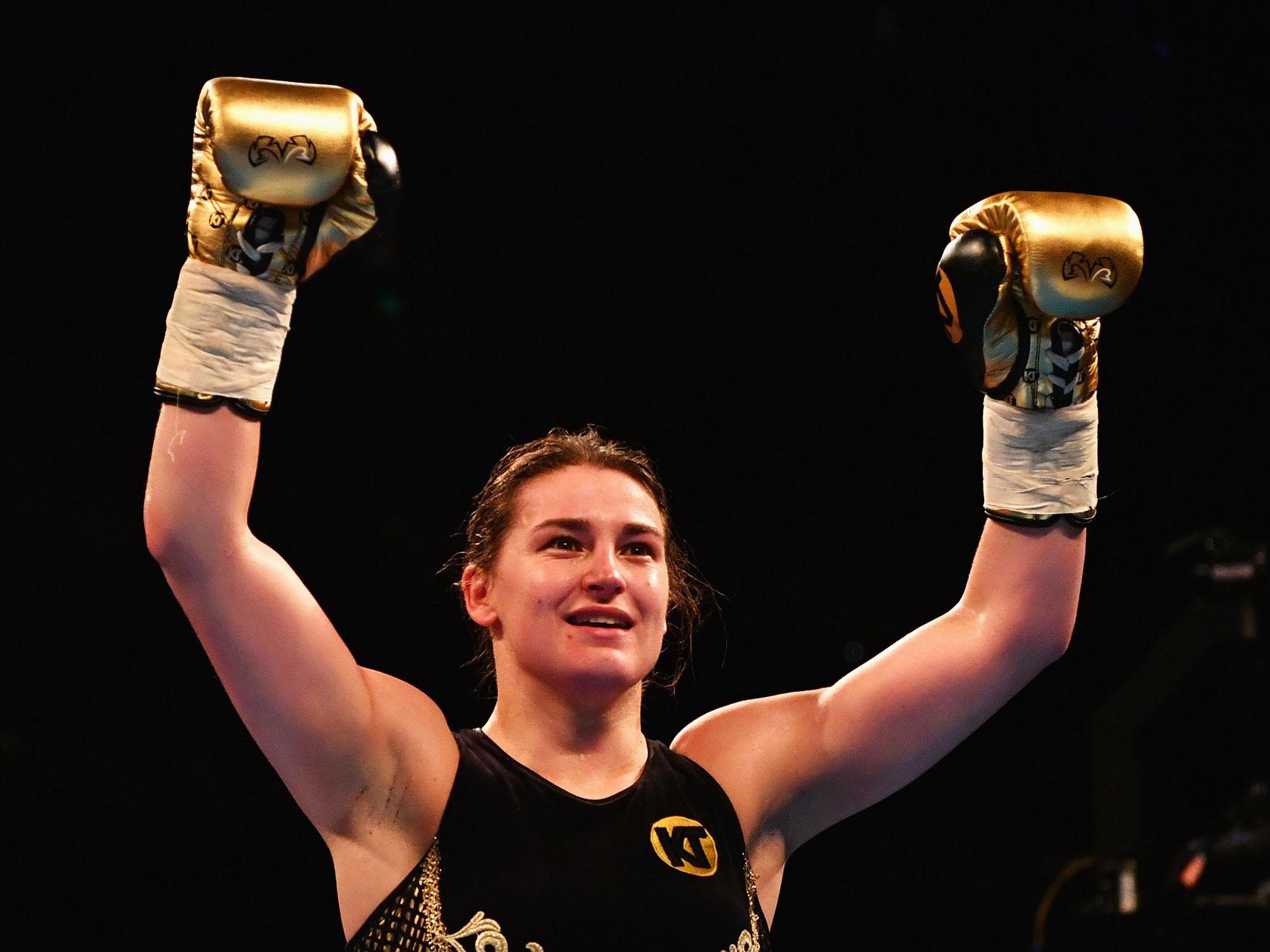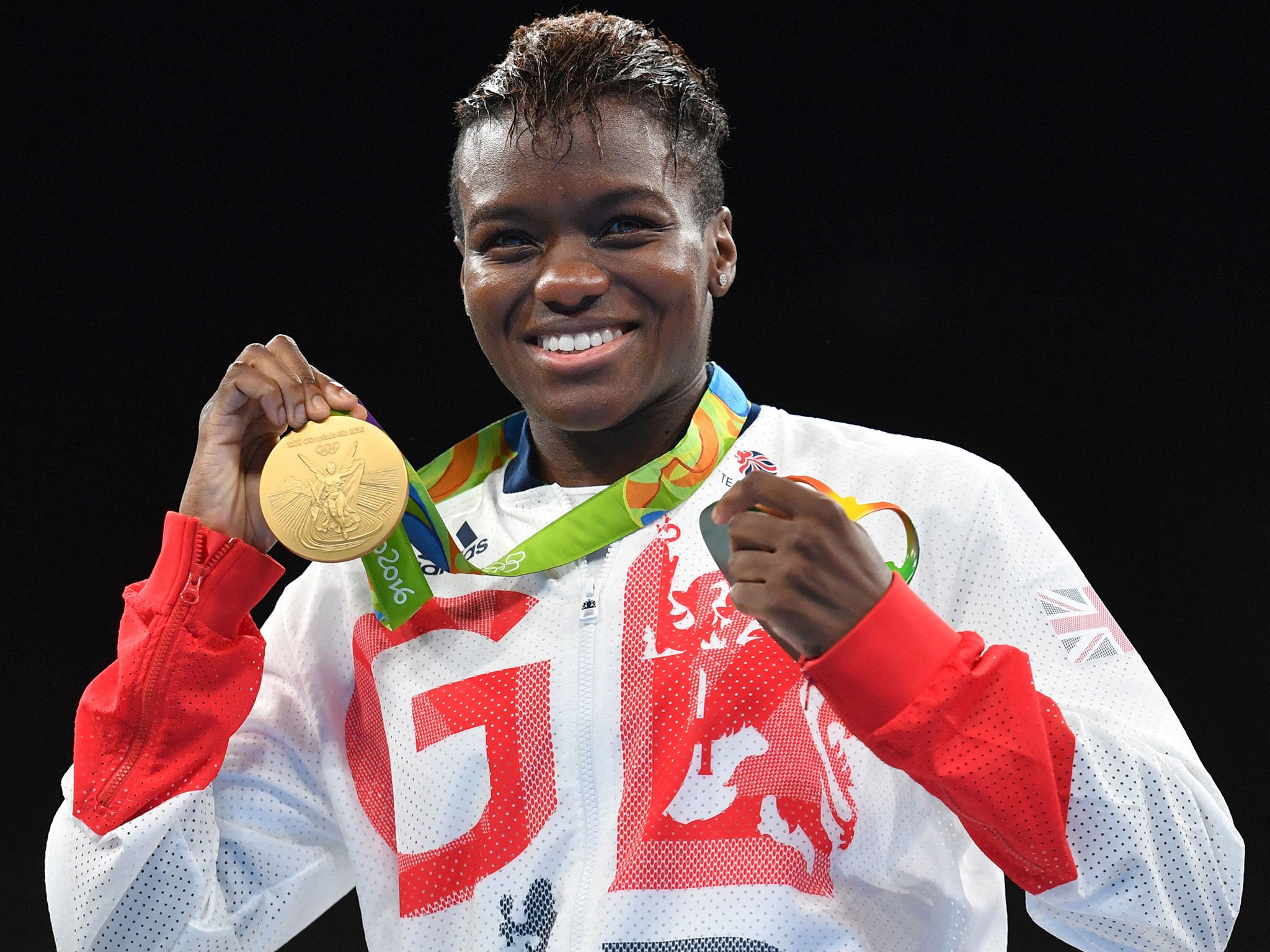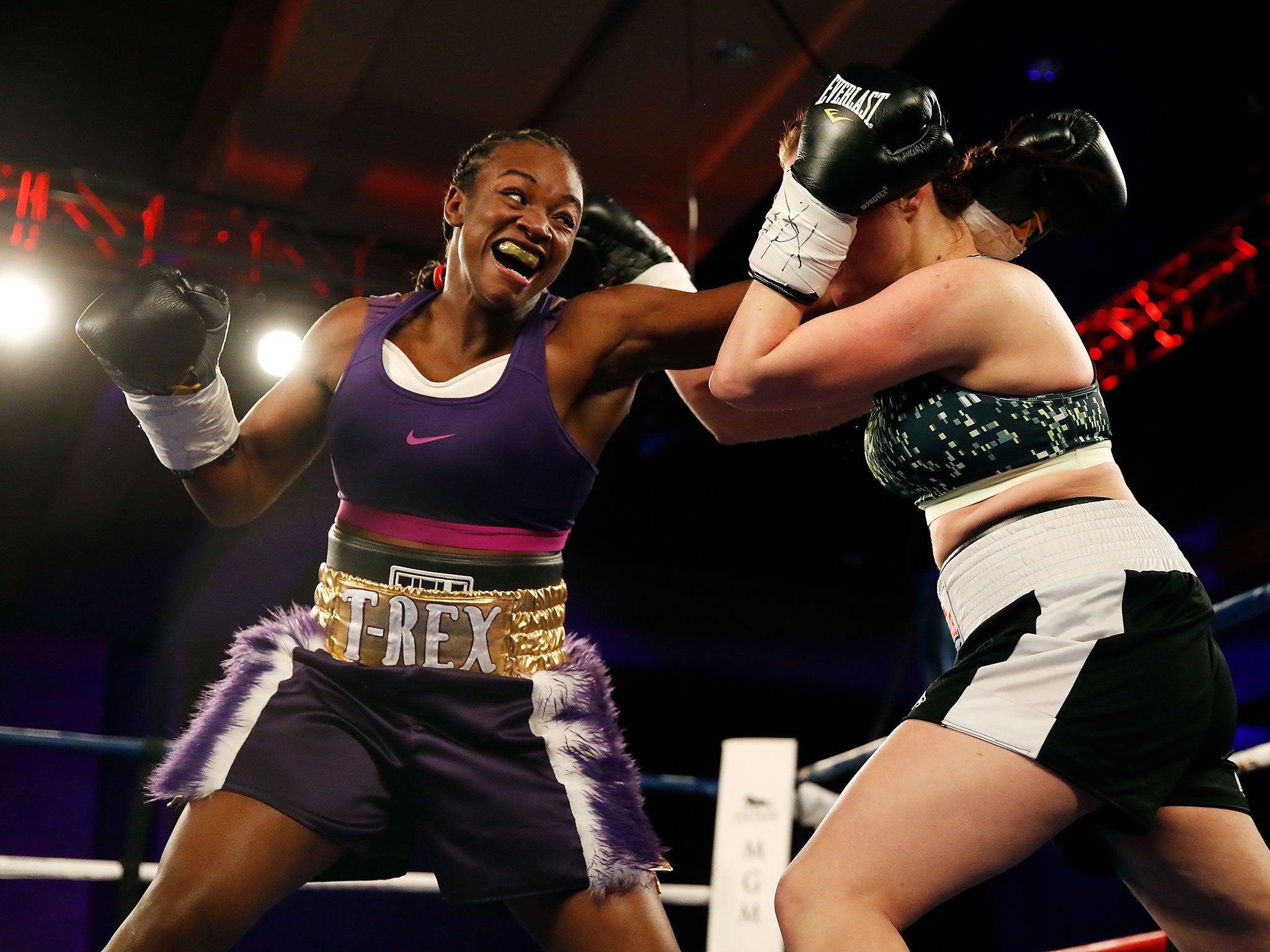Women's boxing is in safe hands with the new generation after fighting its way back from a sordid past
Taylor's fourth professional win this weekend was a raw statistic closer to a world title fight and eight rounds further away from the often sordid history of women's boxing

Your support helps us to tell the story
From reproductive rights to climate change to Big Tech, The Independent is on the ground when the story is developing. Whether it's investigating the financials of Elon Musk's pro-Trump PAC or producing our latest documentary, 'The A Word', which shines a light on the American women fighting for reproductive rights, we know how important it is to parse out the facts from the messaging.
At such a critical moment in US history, we need reporters on the ground. Your donation allows us to keep sending journalists to speak to both sides of the story.
The Independent is trusted by Americans across the entire political spectrum. And unlike many other quality news outlets, we choose not to lock Americans out of our reporting and analysis with paywalls. We believe quality journalism should be available to everyone, paid for by those who can afford it.
Your support makes all the difference.Long before Katie Taylor rejected a suggestion that she wear a mini skirt and not boxing shorts for her fights, a pioneer called Sue Atkins fought in front of the dirty mac brigade above pubs in south London.
On Saturday night Taylor moved to four wins from four starts as a professional, a simple win against a bewildered Bulgarian in front of an indifferent crowd in Manchester; it was a raw statistic closer to a world title fight and eight rounds further away from the often sordid history of women's boxing.
Atkins created a legitimate governing body for women's boxing in Britain in 1993 and sadly her first show became a splash in a porno magazine in a feature on female mud wrestling, girl tag team wrestling wrestling and Amazonian beauties on the loose without tops in gyms. "I wanted to change the image, change the way people looked at women boxing," said Atkins. She did her part, the sneaky snappers took a liberty.

Somewhere between the porn profile of novice swingers at the Atkins bash and Taylor's ruthless dismissal of the hapless Bulgarian, a genuine sport and business emerged; it was not all positive and some of the foul pit stops in Las Vegas were pathetic, mismatches that threatened the sport.
Christy Martin and Laila Ali had high-profile fights and fought on big shows about fifteen years ago in the gambling city. They smashed dubious scrappers, women with names like April Flowers and Foxy Brown, in dreadful fights and each bragged about how they were not part of a female boxing revolution. Ali and Martin were big business, had profile and they could have helped the sport.
Anne Wolfe, who hounded Ali for a fight, and Lucia Rijker, arguably the best female pro ever, were the positive opposite to Ali and Martin at the time. They could both really fight, had a bit of mystique and could hurt real fighters and not those fake sluggers who were just taking a night off from a strip club. The female boxing business was in danger of vanishing when the best known women retired and that is when the amateurs saved it.
In 2001 the first world championships were held in Scranton, Pennsylvania, a location so far removed from the glamour of Las Vegas that NASA could have been the travel agent. I was at the second championship in Turkey in 2002 and it changed the face of women's boxing for ever; the Indians, Chinese, North Koreans and French were brilliant, the shady-lady years were over and having a famous father, a history in cheer leading and a giant bust were no longer currency.

Taylor has won five world titles, the brilliant American middleweight Claressa Shields two and Nicola Adams one; the trio also won the first three Olympic gold medals back in 2012. Shields is now unbeaten in two as a professional and Adams makes her debut in Manchester on 8 April. This is the new generation, women hardened on the road in difficult fights at international events and not pampered, clad in pink and fed a dummy to easily knockout.
The trio will now start to attract their old rivals, it is the way it works for men, and there was news last week that Savannah Marshall has left the GB podium squad after six years. Marshall won a world amateur title in 2012 and is the only person to have ever beaten Shields. Taylor will quickly run out of anonymous Eastern European journeywomen to beat and could have two proper British rivals if Chantelle Cameron, who also quit the Podium squad last week, and Natasha Jonas both turn professional. Jonas lost to Taylor at the London Olympics - it was Taylor's hardest fight - and has had a baby since, but last year before the Rio Olympics she was desperate to fight again.
"A lot of the best amateurs are now talking about going professional," Stacey Copeland told me on Saturday night at ringside in Manchester for Anthony Crolla against Jorge Linares. "The professional side will get better because of the experience we have." Copeland has been English champion three times and has a silver medal from the European championship. She makes her debut in May and like Taylor, Shields and Adams she understands exactly what her sport needs. "There will be real competition, real rivalries and that will inspire the next generation."
In the coming months Shields will be live on television in the main event in her troubled hometown of Flint, Michigan, Adams will return to her beloved Leeds in May and Dublin will welcome back Taylor. The sport of women's boxing will simply never be the same again.
Join our commenting forum
Join thought-provoking conversations, follow other Independent readers and see their replies
Comments